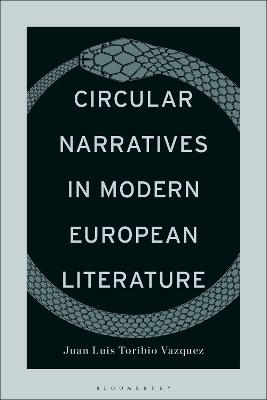
Circular Narratives in Modern European Literature
Seiten
2022
Bloomsbury Academic USA (Verlag)
978-1-5013-8487-5 (ISBN)
Bloomsbury Academic USA (Verlag)
978-1-5013-8487-5 (ISBN)
Breaking with linearity – the ruling narrative model in the Jewish-Christian tradition since the ancient world – many 20th-century European writers adopted circular narrative forms. Juan Luis Toribio Vazquez shows this trend was not a unified nor conscious movement, but rather a series of works arising sporadically in different countries at different times, using a variety of circular structures to express similar concerns and ideas about the world. This study also shows how the renewed understanding of narrative form leading to this circular trend was anticipated by Nietzsche’s critiques of truth, knowledge, language and metaphysics, and especially by his related discussions of nihilism and the eternal recurrence.
Starting with an analysis of the theory and genealogy of linear narrative, the author charts the emergence of Nietzsche’s idea of eternal return, before then turning to the history of the circular narrative trend. This history is explored from its inception, in the works of August Strindberg, Gertrude Stein and Azorín; through its development in the interwar years, by writers such as Raymond Queneau and Vladimir Nabokov; to its full flowering in the work of authors James Joyce or Samuel Beckett, among others; and its later employment by post-war writers, including Alain Robbe-Grillet, Italo Calvino and Maurice Blanchot. Through a series of close readings, the book aims to highlight the various ways in which narrative circularity serves to break with an essentially teleological and theological thinking. Finally, Toribio Vazquez concludes by proposing a new typology of non-linear narratives, which builds on the work of recent narratologists.
Starting with an analysis of the theory and genealogy of linear narrative, the author charts the emergence of Nietzsche’s idea of eternal return, before then turning to the history of the circular narrative trend. This history is explored from its inception, in the works of August Strindberg, Gertrude Stein and Azorín; through its development in the interwar years, by writers such as Raymond Queneau and Vladimir Nabokov; to its full flowering in the work of authors James Joyce or Samuel Beckett, among others; and its later employment by post-war writers, including Alain Robbe-Grillet, Italo Calvino and Maurice Blanchot. Through a series of close readings, the book aims to highlight the various ways in which narrative circularity serves to break with an essentially teleological and theological thinking. Finally, Toribio Vazquez concludes by proposing a new typology of non-linear narratives, which builds on the work of recent narratologists.
Juan Luis Toribio Vazquez is Lecturer in Spanish and Literature at Sam Sharpe Teacher’s College, Montego Bay, Jamaica. He is co-editor, with Thirthankar Chakraborty, of Samuel Beckett as World Literature (Bloomsbury, 2020)
Foreword by Shane Weller (University of Kent, UK)
Acknowledgements
1. Introduction: The Genealogy of Linearity
2. Nietzsche’s Bequest: Buddha’s Shadow and the ‘Greatest Burden’
3. The Birth of Circularity: Strindberg, Stein and Azorín
4. ‘Vivir es Volver’: Queneau, Nabokov and Kharms
5. Circulus Vitiosus Litterae: Joyce, Borges and the Theatre of the Absurd
6. Circular Echoes: Robbe-Grillet, Calvino, Cortázar and Blanchot
7. Conclusion: Circular Narratives in Modern European Literature
References
Index
| Erscheinungsdatum | 15.07.2022 |
|---|---|
| Verlagsort | New York |
| Sprache | englisch |
| Maße | 152 x 229 mm |
| Themenwelt | Geisteswissenschaften ► Sprach- / Literaturwissenschaft ► Anglistik / Amerikanistik |
| Geisteswissenschaften ► Sprach- / Literaturwissenschaft ► Literaturwissenschaft | |
| ISBN-10 | 1-5013-8487-2 / 1501384872 |
| ISBN-13 | 978-1-5013-8487-5 / 9781501384875 |
| Zustand | Neuware |
| Haben Sie eine Frage zum Produkt? |
Mehr entdecken
aus dem Bereich
aus dem Bereich
Poetik eines sozialen Urteils
Buch | Hardcover (2023)
De Gruyter (Verlag)
CHF 83,90
Buch | Softcover (2024)
belleville (Verlag)
CHF 27,95


